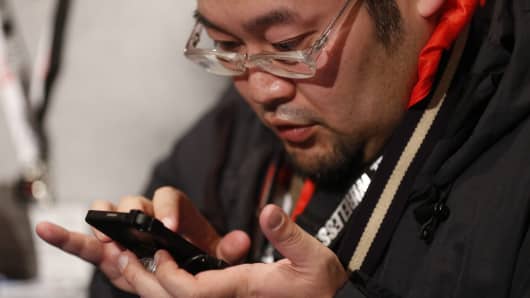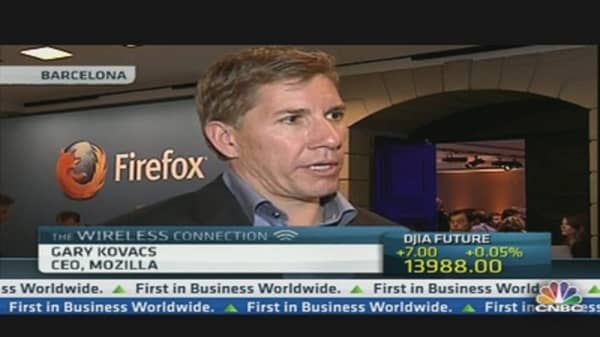Openness. Choice. Balance.
These are the early buzzwords at Mobile World Congress, the industry's massive annual confab whose expected crowd of 70,000 in its third decade of existence gives matches at nearby Futbol Club Barcelona a run for their money, and cabbies in these difficult times for Spain a momentary respite. And it's these words which, despite the unusually chilly air and even frostier European economic climate, are giving the telecom executives gathered here a bit of a spring in their step.
More than anything, this year's conference seems to mark the end of Apple's mobile world dominance and the rise of rival devices that run on more open, developer- and network-friendly operating systems. Case in point: Mozilla's Sunday-night, unofficial conference kick-off event. The nonprofit whose Firefox browser a decade ago helped dismantle Microsoft's choke hold on web browsers is now similarly looking to upend the mobile device market. The industry at present is "unnaturally controlled by a few parties," Mozilla's chief executive, Gary Kovacs, declared as he unveiled the first generation of Firefox OS devices and partners.
And the two-dozen telecom execs who helped launch Firefox OS reiterated that sentiment.
"We are changing the industry for the better of everyone," Cesar Alienta, the chief executive of Telefonica, the Spanish-based telecom which is one of the worlds largest, said on-stage at Mozilla's event Sunday night. This after lashing out at "closed operating systems" (read: Apple) and warning that "the smartphone world is moving backwards" from the openness of the web-based internet. Telefonica plans to shortly introduce Firefox OS-based devices to its customers in Spain, Brazil, Colombia, and Venezuela.
(Read More: Hottest Trends in Mobile Devices)
America Movil, owned by the world's richest man, Carlos Slim, has meanwhile committed to launch Firefox OS phones in Mexico and "all possible markets" as soon as possible. "I believe this is the beginning of the end of walled gardens," the company's chief marketing officer Marco Quatorze said on Sunday. Deutsche Telekom's outgoing chief executive Rene Obermann, whose company will introduce Firefox OS devices in Poland this summer, called it "an important step on the way to more competition between the different ecosystems."





